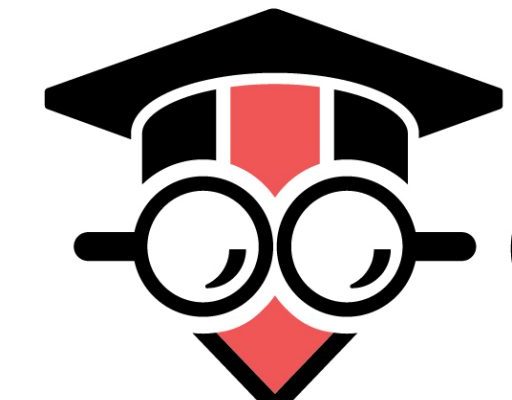How Does Gamification Affect the Learning Process?

Education is any practice that constructively modifies the way we behave, think, and feel. We as humans always have the desire to learn, regardless of age. We also learn in different ways, owing to intrinsic and extrinsic elements not only related to age but also to the level of development and maturity, personality, to experience, as well as genetic and environment to allow students to use and explore their full potential, it is a prerequisite to optimize the educational methods.
How can we make education more enjoyable and more efficient? The answer lies in understanding how students learn. Basic knowledge in educational psychology is indeed what makes good instructors stand out and allows them to convey knowledge efficiently, as required per recipient.
The main learning styles are: (1) visual, relying on images and mindmaps, (2) auditory, using sound, music, and rhythms, (3) physical or learning by doing,(4) verbal, using speech and writing, (5) logical, relying on reasoning to help see the big picture, (6) social or group learning, and (7) solitary, i.e. learning alone or through self-study.
Educational methods currently used are very broad and include academic teaching, practical training, discussion, directed research, and multimedia-based learning. Technology has taken its toll on the educational scene like never before. Indeed, today’s K-12 students have been controversially called digital natives, having been born in the digital era and almost exclusively using technology in their day to day life activities. Moreover, adults and professionals are also adapting to technology and increasing their reliance on it in their day-to-day operations, owing to its omnipresence with the smartphones, tablets, computers, and the internet. These observations suggest a strong influence of technology on all aspects of society.
In the context of education, the trend of using game elements in non-game contexts, termed otherwise gamification, aims at increasing the engagement and motivation of students, capturing their interest to continue learning and influencing their classroom behavior. Although games are today often used in educational environments, the trend remains stigmatized, and its use limited due for example to (1) inadequate access to technology, (2) lack of professional expertise in integrating new technologies, and (3) resistance to change.
To change this, we need to understand the way gamification may facilitate learning systematically.
Gamification in education may optimize the brain’s processing of new information. This may be facilitated by the general aspects of gamified lessons, with the audio-visual presentation, minimized bites of schematized information, short time lapses, and often repetitive patterns.
New information is lost unless it is stored in our long-term memory through a multi-layered process involving attention, perception, selection, organization and integration of information. The first relay of new data is in our working memory, which can handle only a small amount of information at a time. Miller has suggested that the human brain can process seven pieces of information at one time, which will be lost in 20 seconds if not further processed to reach long-term memory.
The brain processes information in the working memory using two channels—visual and auditory. When information is presented using both channels, the brain, i.e. working memory, can accommodate more new information. However, information overload which may hinder the integration of the new information into long-term memory. Therefore, small chunks of information need to be presented in an organized fashion. This allows the brain to integrate and organize new information to existing schemas in our long-term memory.
Moreover, recent research has suggested that the attention span in humans has decreased from around 12 to 8 seconds. This change has been attributed to the digital revolution, aside from its beneficial effects including faster reaction time and increased ability to multitask. These findings stress the need to adopt modern ways, such as gamification, to transfer new knowledge and information to students and teachers alike.
Gamification in education can improve motivation and engagement. Game elements such as immediate feedback and earning badges for completing the challenges successfully are strongly influential on increasing the students’ drive in engaging in these games even within the walls of a classroom.
Additionally, the social component of gamified learning, whereby students gamify in groups, leads to loads of benefits on the brain function. Indeed, social, intellectual engagement activates neurotransmission in the brain, brain plasticity, and rewiring, and mitigates brain inflammation and the deleterious effects of oxidative stress on the brain. The beneficial effects of social interactions have been interestingly highlighted in delaying dementia in the elderly population.
Gamification modifies the brain’s reward and pleasure center and ameliorates learning. It is well established that games, whereby a person wins or receives positive feedback, can activate the brain’s pleasure circuits by inducing the release of the neurotransmitter dopamine. Educational games are suggested to have the same influence given their elements of winning challenges or successfully achieving a goal. This pleasure during gamified education results thus in a long-lasting affinity for the academic subject or for solving otherwise complex problems.
Furthermore, the influence of games on the pleasure center has important effects on learning per se. Indeed, reward-related signals have been reported to promote the storage of new information into long-term memory through dopaminergic modulation of the midbrain, which activates the hippocampus, a structure primarily involved in learning and memory. Dopamine is also involved in controlling neuronal plasticity within the hippocampus, which is a significant brain phenomenon underlying the acquisition of new information and skills. Moreover, hippocampal memory has been reported to improve following the practice of video games in adults through the stimulation of the brain circuits.
Conclusion
We are at a time where both children and adults spend hours at a time on games. There is evidence that this may have led to changes in the brain functions. Adopting gamification in education to a certain extent may be a healthy initiative to modernize education to go hand in hand with the new digital era.





